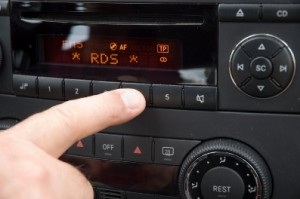The effects of alcohol on driving behaviours are well known and the legal limits are clear and well publicised. The consequences of drug use on driving behaviours are not as widely understood, but with recent advertising campaigns (the “wide eyed” advert) and celebrities being arrested for drug-driving, levels of publicity are increasing.
After alcohol, cannabis is the most frequently detected drug found in the blood of motorists who have been involved in a collision. In a recent journal article, Andrew Sewell and colleagues from Yale University reviewed a large number of studies examining the effects of cannabis on driving. Experimental lab-based studies have shown a wide range of impairments in driving skill after cannabis use, including reduced reaction times and psychomotor skills, and difficulties in maintaining attention and tracking objects in the environment.
Interestingly, although cannabis use clearly has a detrimental effect on driving skills, research has shown that drivers who have consumed cannabis are more cautious in their driving. A number of studies have shown that people who have used cannabis drive more slowly and leave larger gaps between their car and the car in front of them. Such findings, however, contradict the conclusions of other researchers who have suggested that individuals who use cannabis are likely to be “risk takers” and therefore are more likely to be involved in an incident.
Returning to Sewell’s review, they emphasised the dangers of driving after the consumption of both alcohol and cannabis. Each drug impairs driving skills in distinct ways. Cannabis use reduces the more “automatic” driving skills, aspects of our driving behaviour that we do not consciously put effort into, but has less of an effect on tasks that require conscious concentration and processing (such as negotiating a junction). In contrast, alcohol consumption has more of a detrimental effect on complex tasks that require conscious and focussed processing. Consequently, driving after the combined use of alcohol and cannabis has far more than just double the risk of using either drug in isolation.
Alcohol and cannabis are not the only drugs known to influence driving behaviours. There is relatively little evidence looking at the effects of cocaine use on driving skills and the research that has been done tends to suggest that the use of cocaine does not have a direct influence of driving behaviours. There are, however, indirect impairments to driving behaviour following cocaine use, due to the short term changes in temperament and long term changes in personality. The increased feelings of euphoria and invincibility that are associated with cocaine use are likely to have an indirect, but very real, influence on driving behaviours, leading to high levels of risk taking.
It is clear that the use of drugs before driving has a negative impact on driving skills, but there is relatively little publicity regarding this. For alcohol consumption there are clear guidelines regarding the number of units that may be “safely” consumed before driving. Given that drugs such as cannabis and cocaine are illegal, a “zero tolerance” approach is the only real recommendation that can be given. However, the effects of drug taking on driving should be more widely publicised and included in driving education schemes, so that individuals have a full understanding of the potentially disastrous consequences of driving after drug taking.
_________
Dr Victoria Bourne (BA Hons, DPhil)
Consultant to Driving Risk Management Limited

